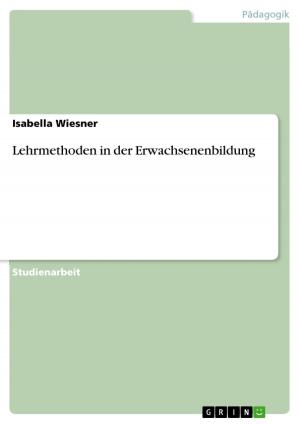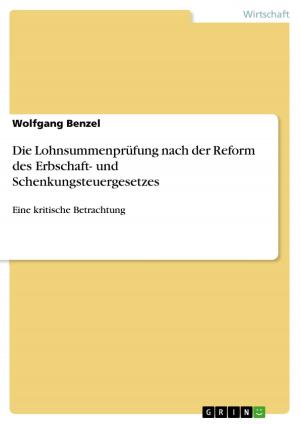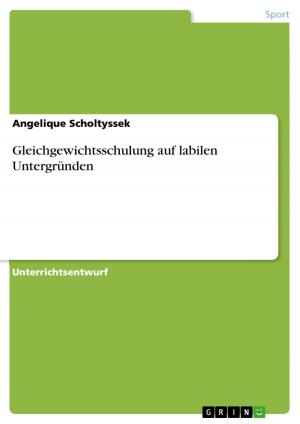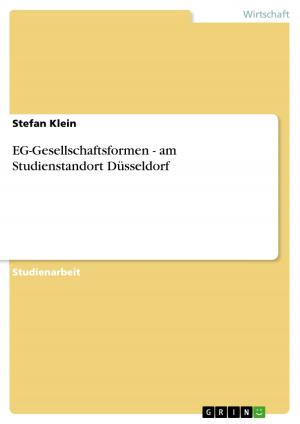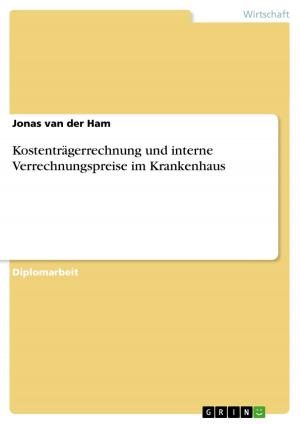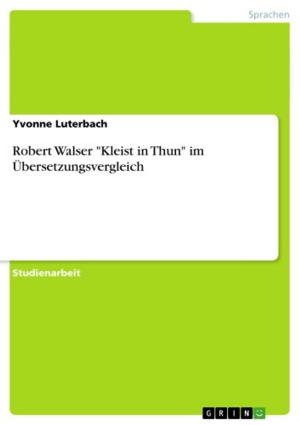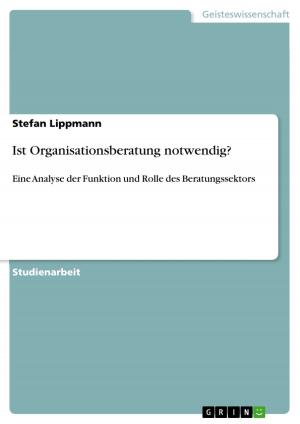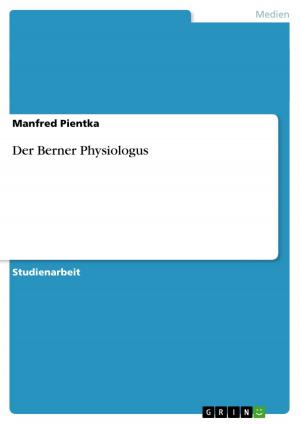The Problem of Induction
What it is and whether Popper's theory can solve it
Nonfiction, Reference & Language, Education & Teaching| Author: | Eva Frischmann | ISBN: | 9783656251569 |
| Publisher: | GRIN Verlag | Publication: | August 2, 2012 |
| Imprint: | GRIN Verlag | Language: | English |
| Author: | Eva Frischmann |
| ISBN: | 9783656251569 |
| Publisher: | GRIN Verlag |
| Publication: | August 2, 2012 |
| Imprint: | GRIN Verlag |
| Language: | English |
Scientific Essay from the year 2012 in the subject Pedagogy - Science, Theory, Anthropology, grade: 1,0, University of Sussex, course: Philosophy of Science, language: English, abstract: The Problem of Induction has often been considered to be one of the main challenges in the philosophy of science (see e.g., Noonan 1999: 11, Ladyman 2005: 39, Beebee 2006: 37). Even Maxwell (1972) highlighted the relevance of the problem as it might undermine the rationality of science (Maxwell 1972: 137-140). The present paper does not aim at providing a review of the entire debate but has a rather modest aim: Presenting one particular view of the Problem of Induction and evaluating in how far Popper's theory might be seen as a solution to this problem. Our first point will be to define (one version of) the Problem of Induction. Having done so, the task will be to look at what Popper says with regard to this problem. It will turn out that there are three main lines of reasoning within Popper's work concerning the Problem of Induction, namely his falsificationist account, his anti-justificationist account, and his rationalist account. For each of those lines of argumentation, we will examine what Popper means by it, why he claims it, whether we are convinced by it and whether it might solve the Problem of Induction.
Scientific Essay from the year 2012 in the subject Pedagogy - Science, Theory, Anthropology, grade: 1,0, University of Sussex, course: Philosophy of Science, language: English, abstract: The Problem of Induction has often been considered to be one of the main challenges in the philosophy of science (see e.g., Noonan 1999: 11, Ladyman 2005: 39, Beebee 2006: 37). Even Maxwell (1972) highlighted the relevance of the problem as it might undermine the rationality of science (Maxwell 1972: 137-140). The present paper does not aim at providing a review of the entire debate but has a rather modest aim: Presenting one particular view of the Problem of Induction and evaluating in how far Popper's theory might be seen as a solution to this problem. Our first point will be to define (one version of) the Problem of Induction. Having done so, the task will be to look at what Popper says with regard to this problem. It will turn out that there are three main lines of reasoning within Popper's work concerning the Problem of Induction, namely his falsificationist account, his anti-justificationist account, and his rationalist account. For each of those lines of argumentation, we will examine what Popper means by it, why he claims it, whether we are convinced by it and whether it might solve the Problem of Induction.



